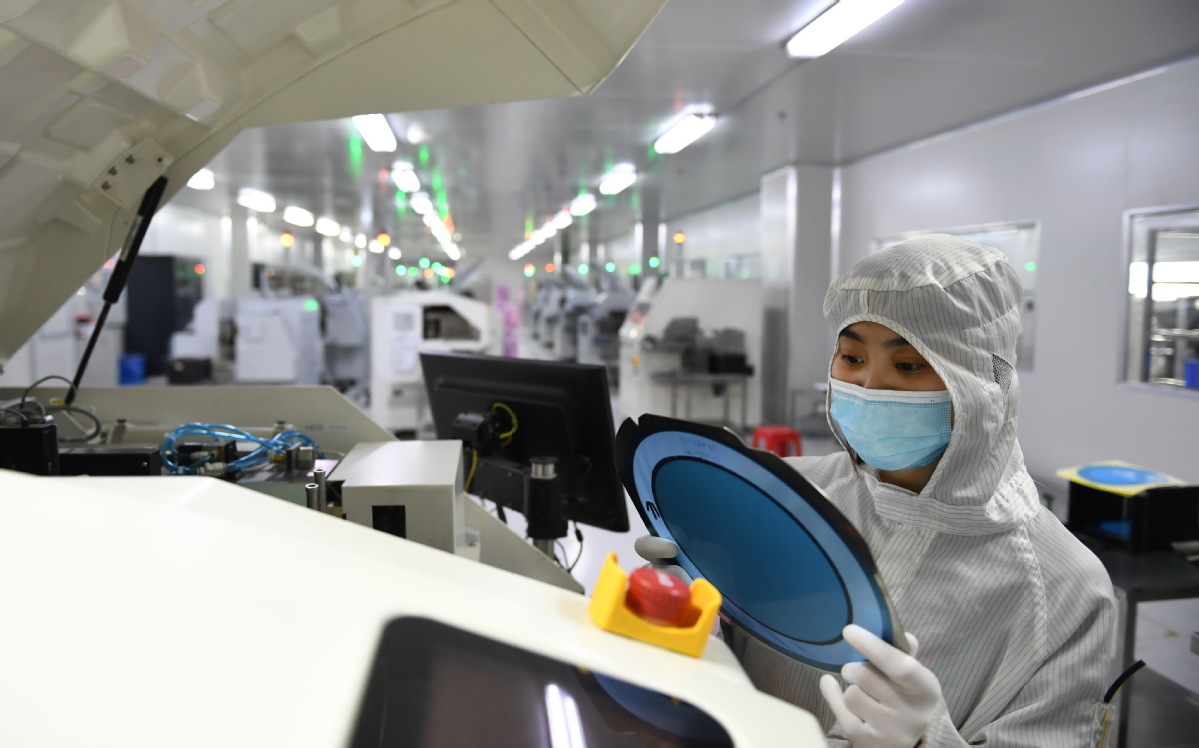IDC sees chip sector recovery as revenue up


Revenue of the global semiconductor market is forecast to grow by 17.3 percent this year versus 10.8 percent in 2020, according to a report from International Data Corp, a market research company.
Growth of pricier chips with higher memory is driven by their wider use in mobile phones, notebooks, servers, automobiles, smart homes, gaming, wearables, and Wi-Fi access points, IDC said.
It also forecast the semiconductor industry will see normalization and restore balance by the middle of 2022, with a potential for overcapacity in 2023 as larger-scale capacity expansions are expected toward the end of 2022.
That could mean the current shortages of integrated circuits, or ICs, are also expected to continue easing through the fourth quarter of this year, with the accelerated expansion of production capacities.
IDC also predicted the semiconductor market will reach $600 billion by 2025, with compound annual growth rate of 5.3 percent from this year through 2025. This is higher than the typical 3-4 percent mature growth seen historically, it said.
Mario Morales, group vice-president of enabling technologies and semiconductors at IDC, said in a research note the semiconductor content story is intact. It will benefit the semiconductor companies; but, the volume growth in many of the markets that they serve will also continue to drive high growth.
According to IDC, despite the COVID-19 pandemic, consumption remains healthy. The global revenue of 5G semiconductors is forecast to increase by 128 percent year-on-year this year, with total mobile phone semiconductors expected to grow by 28.5 percent.
Game consoles, smart home, and wearables will grow 34 percent, 20 percent, and 21 percent, respectively, this year. Automotive semiconductor revenues will also increase by 22.8 percent year-on-year as shortages are expected to be mitigated by the end of this year, IDC forecast.
Amid the current shortage of chips, many semiconductor companies are beefing up their efforts to build new production capacities.
For instance, last week, German chipmaker Infineon Technologies AG opened its high-tech, 300-millimeter wafers factory for power electronics at its Villach site in Austria.
At 1.6 billion euros ($1.88 billion), the investment made by the semiconductor group represents one of the largest such projects in the microelectronics sector in Europe.
Reinhard Ploss, CEO of Infineon, said in a statement: "The timing to create new capacity in Europe could not be better, given the growing global demand for power semiconductors. The last few months have clearly shown how essential microelectronics are in virtually every area of life.
"Given the accelerated pace of digitalization and electrification, we expect demand for power semiconductors to continue to grow in the coming years."
Fu Liang, an independent technology analyst, said as chip shortages ease, many industries like automotive, smartphones and personal computers will benefit.




































